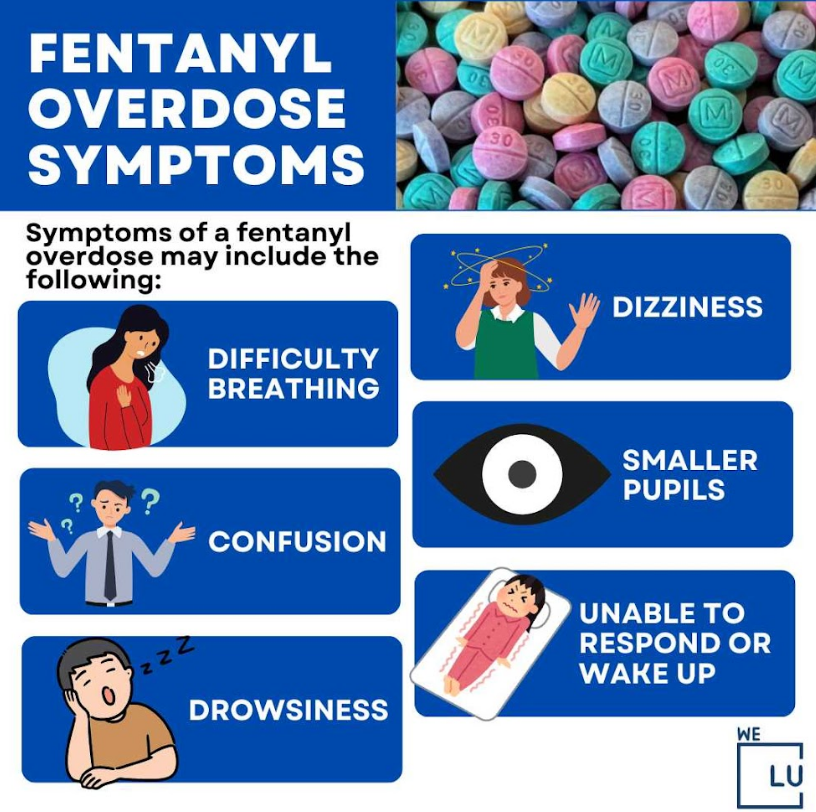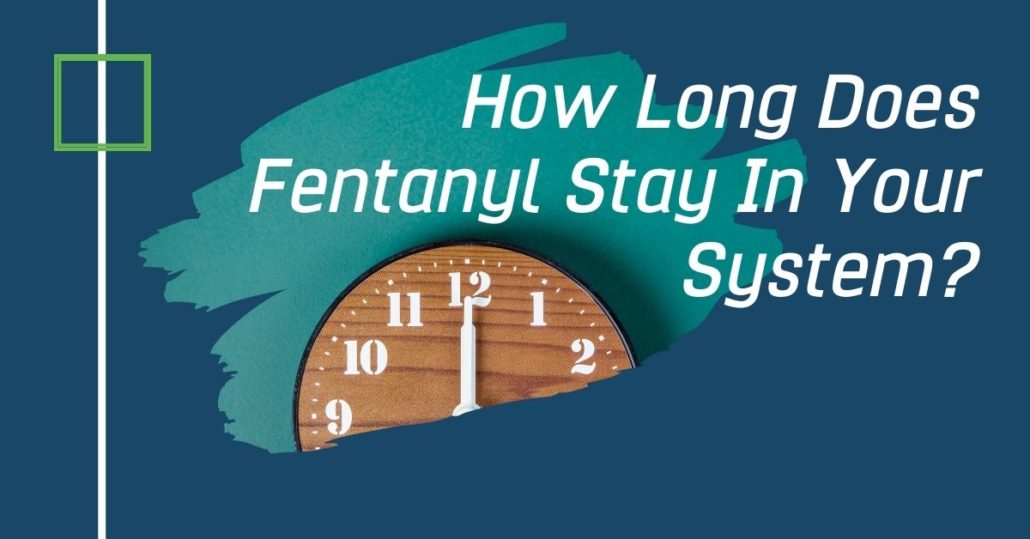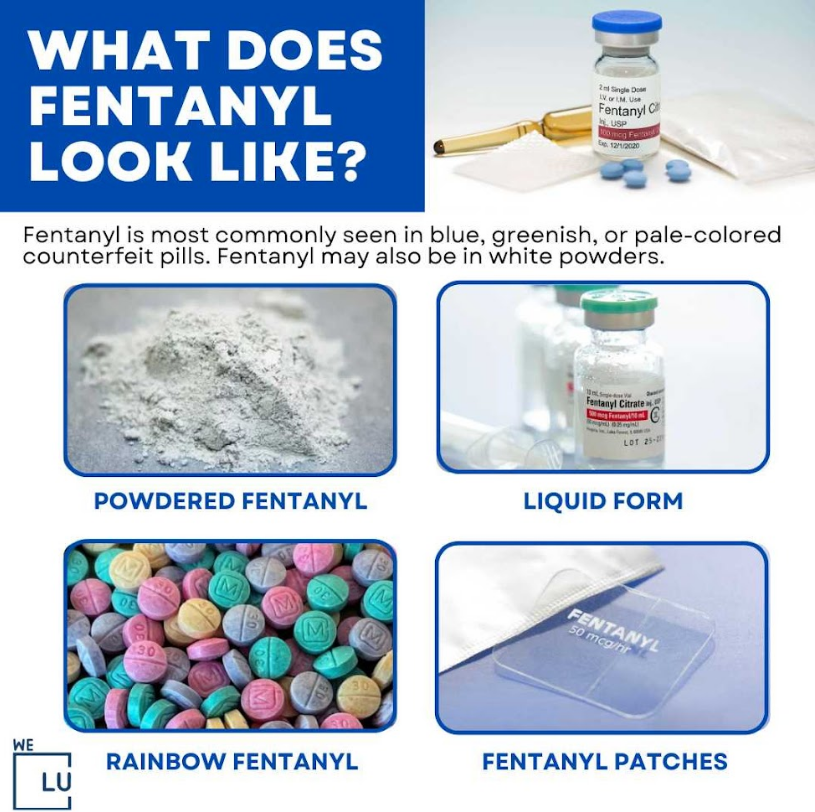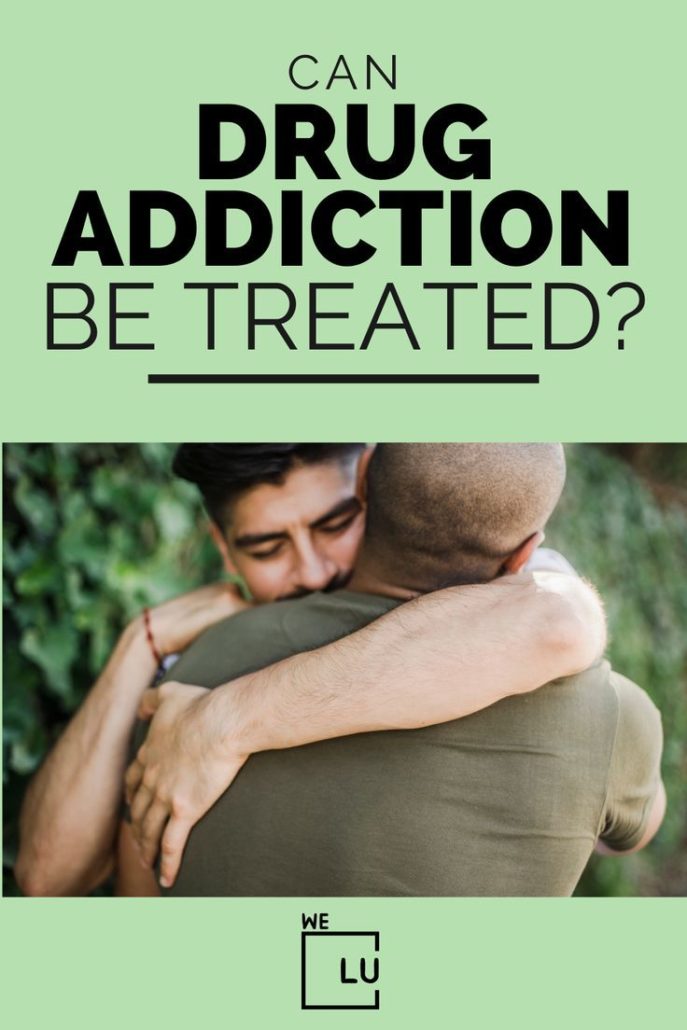Is Fentanyl Addictive?
In recent years, the opioid crisis has taken a devastating toll on individuals and communities across the globe. Among the potent opioids contributing to this epidemic, fentanyl stands out for its staggering potency and the alarming rates of addiction and overdose.
In this comprehensive article, we delve deep into the world of fentanyl addiction. We will explore what makes fentanyl addictive, the signs and symptoms of its abuse, the life-threatening risks of overdose, and the often excruciating withdrawal. Join us as we uncover the critical information needed to address the fentanyl crisis and offer hope for those seeking recovery and healing.
Struggling with Substance Abuse? Join numerous individuals who have found support in We Level Up for drug addiction treatment. Contact us 24/7 for confidential assistance. Our addiction professionals are here to guide you on your recovery journey.
Signs of Being Addicted to Fentanyl
Recognizing the signs of Fentanyl addiction is crucial for early intervention and support if you think you are addicted to Fentanyl. Common indicators include:
- Increased Tolerance: Individuals may require higher doses to achieve the desired effects as tolerance develops.
- Withdrawal Symptoms: When not using Fentanyl, users may experience withdrawal symptoms like intense cravings, nausea, muscle pain, and restlessness.
- Neglecting Responsibilities: Addiction often leads to a neglect of personal and professional responsibilities.
- Social Isolation: Individuals may withdraw from social circles and prioritize drug use.
- Failed Attempts to Quit: Repeated unsuccessful attempts to quit or cut down on Fentanyl use.
- Risk-Taking Behavior: Engaging in risky activities to obtain or use Fentanyl.
- Physical and Psychological Health Decline: Fentanyl addiction can lead to severe physical and mental health issues.
How Addictive is Fentanyl
Fentanyl is an exceptionally potent synthetic opioid classified as a Schedule II controlled substance due to its high potential for abuse and addiction. Its extreme potency, even in small doses, contributes to its addictive nature. Here’s why Fentanyl is considered highly addictive:
- Rapid Onset: Fentanyl acts quickly in the brain, producing intense euphoria and relaxation within minutes of use. This rapid onset increases its potential for addiction.
- High Tolerance: With repeated use, individuals develop tolerance, meaning they need higher and higher doses to achieve the same effects. This can lead to escalated use, increasing the risk of addiction.
- Physical Dependence: Prolonged Fentanyl use can result in physical dependence, where the body adapts to the presence of the drug. Withdrawal symptoms occur when a person tries to quit, which can be highly uncomfortable and compel continued use.
- Psychological Dependence: Fentanyl can also lead to psychological dependence, as individuals may become emotionally reliant on the drug to cope with stress, anxiety, or emotional pain.
- Cravings: Users often experience solid cravings for Fentanyl, driving them to seek and use the drug even when aware of its risks.
- Risk of Overdose: Fentanyl’s potency increases the risk of accidental overdose, especially when individuals are unaware of its presence in other substances.
- Escalation to Other Substances: Fentanyl use may escalate to other opioids or drugs, increasing the risk of addiction.

Skip To:
Learn More:
- How Strong Is Fentanyl, Is Fentanyl Stronger Than Morphine & Are There Drugs Stronger Than Fentanyl?
- Blue Fentanyl Pills & Blue Fentanyl Powder, What Are They?
- When Is National Fentanyl Awareness Day and What Is It? Fentanyl Awareness And Prevention Day
- Dilaudid Vs Fentanyl, Is Fentanyl Stronger Than Dilaudid? Fentanyl To Dilaudid Conversion
- What Is Purple Fentanyl? Why Is Fentanyl Purple? Purple Fentanyl Pills
- Fentanyl Street Names, What Is The Slang For Fentanyl? Common Street Names For Fentanyl
- How Long Does Fentanyl Stay In Urine? Fentanyl Urine Testing
How long Does it Take to Get Addicted to Fentanyl?
The time it takes to become addicted to Fentanyl can vary widely from person to person. Several factors influence how quickly addiction can develop, including:

- Frequency and Amount of Use: Regular and heavy use of Fentanyl increases the risk of addiction. Using it daily or in large quantities accelerates the process.
- Individual Differences: Each person’s physiology and genetics are unique. Some individuals may be more predisposed to addiction due to genetic factors or a history of substance abuse.
- Tolerance and Dependence: Developing tolerance, where higher doses are needed for the same effect, and physical dependence can occur relatively quickly. These are signs that addiction may be developing.
- Psychological Factors: Emotional or psychological dependence on Fentanyl can develop over time. Using the drug to cope with stress, emotional pain, or other issues can lead to addiction.
- Polysubstance Use: Using Fentanyl in combination with other substances, such as alcohol or other opioids, can hasten the development of addiction.
Fentanyl Drug Facts
Fentanyl Overview
What does fentanyl do to you? Fentanyl is a synthetic opioid that is many times more potent than heroin and is primarily used for pain management. It can cause pain relief, sedation, and respiratory depression but can also lead to dangerous side effects and overdose. Fentanyl abuse can cause long-term physical and mental health problems, addiction, and dependence. A hazardous drug should only be used as a healthcare provider prescribes.
Fentanyl Abuse Signs
- Pinpoint pupils.
- Drowsiness or nodding off.
- Confusion or disorientation.
- Slurred speech.
- Shallow breathing or difficulty breathing.
- Nausea or vomiting.
- Constipation.
- Itching or skin rash.
- Muscle rigidity or muscle weakness.
- Social withdrawal or isolation.
- Changes in behavior or mood.
- Financial problems or stealing to obtain drugs.
- Neglecting responsibilities or personal hygiene.
Fentanyl Addiction Treatment
Fentanyl addiction is a severe condition that requires professional treatment. Here are some common treatments for fentanyl addiction:
- Medication-assisted treatment (MAT): MAT involves using medications, such as methadone or buprenorphine, to manage withdrawal symptoms and cravings. MAT is often combined with behavioral therapy.
- Behavioral therapy: Behavioral therapy involves counseling and other behavioral interventions to address the underlying causes of addiction and help individuals develop coping skills to prevent relapse.
- Inpatient treatment involves staying at a treatment facility for a while to receive intensive therapy and support.
- Outpatient treatment: Outpatient treatment allows individuals to receive treatment while living at home and attending work or school.
- Support groups: Support groups, such as Narcotics Anonymous, can provide individuals with a supportive community of people who have also struggled with addiction.
Recovery from fentanyl addiction is lifelong and may require ongoing treatment and support. It’s also essential to seek professional help from a healthcare provider or addiction specialist for the most effective treatment.

Get Your Life Back
Find Hope & Recovery. Get Safe Comfortable Detox, Addiction Rehab & Dual Diagnosis High-Quality Care.
Hotline(844) 597-1011Fentanyl Addiction Statistics
The insidious grip of fentanyl addiction has been steadily tightening its hold on individuals and communities worldwide. To comprehend the accurate scale of this crisis, one must turn to the stark and sobering realm of Fentanyl Addiction Statistics. These figures not only reveal the alarming prevalence of fentanyl abuse but also shed light on the profound societal impact of this deadly synthetic opioid.
- Global Reach: Fentanyl addiction is not confined to a single region or country. Reports of fentanyl seizures and overdose cases have emerged from North America to Europe and beyond, indicating a widespread and evolving global crisis.
- Complex Relationship with Other Substances: Fentanyl is often mixed with other drugs, such as cocaine or methamphetamine, without the user’s knowledge. This unpredictability amplifies the risks associated with fentanyl use and underscores the need for vigilant harm reduction strategies.
- Rapid Rise in Overdose Deaths: The surge in fentanyl-related overdose deaths has been catastrophic in recent years. According to the Centers for Disease Control and Prevention (CDC), fentanyl and its analogs are now responsible for a significant portion of opioid overdose fatalities in the United States, with a more than 50% increase in fentanyl-involved overdose deaths from 2019 to 2020.
73%
Synthetic opioids, including fentanyl, were involved in almost 73% of all opioid-related overdose deaths in 2019.
Source: CDC
1.6 million
Approximately 1.6 million people aged 12 or older misused prescription pain relievers like fentanyl for the first time in 2020.
Source: The National Survey on Drug Use and Health
57%
Fentanyl seizures by law enforcement in the US increased by 57% from 2019 to 2020, with nearly 17,000 pounds of fentanyl seized in 2020.
Source: DEA
Fentanyl Addiction Symptoms
Fentanyl addiction can have severe consequences, making it crucial to identify the signs early for intervention and support. Here are common symptoms of Fentanyl addiction:
- Increased Tolerance: Individuals may need higher doses of Fentanyl to achieve the desired effects over time.
- Withdrawal Symptoms: When not using Fentanyl, users may experience withdrawal symptoms, including intense cravings, nausea, vomiting, muscle pain, and restlessness.
- Neglect of Responsibilities: Addiction often leads to neglect of personal and professional responsibilities, such as work, relationships, and daily obligations.
- Social Isolation: Individuals may withdraw from social circles and prioritize Fentanyl use over personal connections.
- Failed Attempts to Quit: Repeated unsuccessful attempts to quit or cut down on Fentanyl use despite recognizing its harmful effects.
- Risk-Taking Behavior: Engaging in risky activities to obtain or use Fentanyl may involve illegal or dangerous actions.
- Physical and Psychological Health Decline: Fentanyl addiction can lead to severe physical and mental health deterioration, including respiratory issues, depression, and anxiety.
Get Help. Get Better. Get Your Life Back.
Searching for Accredited Drug and Alcohol Rehab Centers Near You?
Even if you have failed previously and relapsed, or are in the middle of a difficult crisis, we stand ready to support you. Our trusted behavioral health specialists will not give up on you. When you feel ready or just want someone to speak to about therapy alternatives to change your life call us. Even if we cannot assist you, we will lead you to wherever you can get support. There is no obligation. Call our hotline today.
(844) 597-1011Why Is Fentanyl So Addictive
Fentanyl is exceptionally addictive due to several key factors that make it one of the most potent and dangerous opioids available. Understanding why fentanyl is so addictive involves considering its pharmacological properties and the intense effects it has on the brain and body:
- Potency: Fentanyl is incredibly potent. It’s estimated to be 50 to 100 times more potent than morphine and up to 50 times more potent than heroin. This means that even tiny amounts of fentanyl can produce powerful and rapid effects, leading to a euphoric high that is highly rewarding to users. Intense and immediate gratification encourages repeated use.
- Rapid Onset and Short Duration: Fentanyl acts quickly, crossing the blood-brain barrier rapidly. This fast onset of action leads to an intense rush of euphoria, which is highly reinforcing for individuals seeking the pleasurable effects of opioids. However, the effects of fentanyl are relatively short-lived, leading users to crave more and engage in repeated dosing to maintain the high.
- Tolerance Development: As the body becomes accustomed to the presence of fentanyl, tolerance develops. This means that individuals need higher and higher doses to achieve the same level of euphoria they initially experienced. Tolerance drives users to escalate their drug use, increasing the risk of overdose and addiction.
- Physical Dependence: With continued use, the body becomes physically dependent on fentanyl. This means that the body adapts to the presence of the drug, and when it is absent, withdrawal symptoms occur. Fentanyl withdrawal can be excruciating, leading individuals to use the drug to avoid these unpleasant symptoms.
- Psychological Dependence: Fentanyl produces physical dependence and leads to psychological solid cravings. Users often become psychologically dependent on the drug, thinking about it obsessively and unable to function without it. This psychological dependence further reinforces the addictive cycle.
- Availability and Illicit Production: The illicit production and distribution of fentanyl have contributed to its widespread availability. It can be found mixed with other drugs, such as heroin or counterfeit prescription pills, often without the user’s knowledge. This increases the risk of accidental fentanyl exposure and addiction.
- Stress and Coping Mechanism: Fentanyl can temporarily relieve emotional and physical pain. Individuals who are experiencing stress, trauma, or chronic pain may turn to fentanyl as a way to self-medicate and cope with their difficulties, which can lead to addiction as they seek to escape their problems.
Fentanyl is addictive due to its extraordinary potency, rapid onset of euphoria, development of tolerance, and physical/psychological dependence it fosters. These factors combine to create a perfect storm of addiction, making fentanyl one of the most dangerous and addictive substances in the world of opioids.
In summary, fentanyl is highly addictive because of its exceptional potency, rapid onset and short duration of effects, tolerance development, physical and psychological dependence, widespread availability, and its role as both a euphoric escape and a coping mechanism for individuals facing life’s challenges.

Fentanyl Addiction Face

“Fentanyl Addiction Face” refers to the physical changes in appearance associated with chronic fentanyl abuse. These changes may include a pale complexion, skin irritations, dark circles or puffy eyes, weight loss, and neglect of personal hygiene. These visible signs underscore the urgent need for individuals to seek help and treatment for their fentanyl addiction.
These physical changes are often accompanied by severe health issues, including deteriorating overall well-being, and they underscore the urgency of seeking help and treatment for individuals struggling with fentanyl addiction.
First-class Facilities & Amenities
World-class High-Quality Addiction & Mental Health Rehabilitation Treatment
Rehab Centers TourRenowned Addiction Centers. Serene Private Facilities. Inpatient rehab programs vary.
Addiction Helpline(844) 597-1011Proven recovery success experience, backed by a Team w/ History of:
15+
Years of Unified Experience
100s
5-Star Reviews Across Our Centers
10K
Recovery Success Stories Across Our Network
- Low Patient to Therapist Ratio
- Onsite Medical Detox Center
- Comprehensive Dual-Diagnosis Treatment
- Complimentary Family & Alumni Programs
- Coaching, Recovery & Personal Development Events
Fentanyl Addiction Treatment at We Level Up Treatment Center
At We Level Up, we understand the devastating impact of Fentanyl addiction and are committed to providing comprehensive treatment and support for individuals seeking recovery. Our Fentanyl addiction treatment program is designed to address the unique challenges posed by this highly potent opioid.
Services of Our Fentanyl Addiction Treatment
- Personalized Care: We recognize that each individual’s journey to recovery is unique. Our treatment plans are tailored to meet each person’s needs and goals.
- Medical Supervision: Fentanyl withdrawal can be physically challenging and even dangerous. Our experienced medical staff provides 24/7 supervision to ensure safety and comfort during detoxification.
- Evidence-Based Therapies: Our treatment approaches are grounded in evidence-based therapies proven effective in addiction recovery. These may include cognitive-behavioral therapy (CBT), individual counseling, and group therapy.

- Dual Diagnosis Support: Many individuals with Fentanyl addiction also struggle with co-occurring mental health disorders. We offer dual diagnosis treatment to simultaneously address addiction and underlying mental health issues.
- Holistic Approaches: We believe in treating the whole person, not just the addiction. Holistic therapies such as yoga, mindfulness, and art therapy are integrated into our programs to promote overall well-being.
- Aftercare and Relapse Prevention: Recovery doesn’t end with treatment. We provide aftercare programs and relapse prevention strategies to support individuals in maintaining sobriety and transitioning back into daily life.
- Confidential and Supportive Environment: We Level Up offers a safe, confidential, and non-judgmental space where individuals can openly discuss their challenges and work toward recovery.
Above all, drug and alcohol rehab is intended to assist clients in getting down to the root causes of their addiction and learning how to maintain a lifestyle of sobriety on their own.
At We Level Up Treatment Center, our dedicated team is devoted to helping you overcome the challenges of managing Fentanyl drug addiction. We offer comprehensive support, individualized guidance, and compassionate care throughout your journey towards a more fulfilling life. Let’s embark on this transformative path together towards managing Addiction.
World-class, Accredited, 5-Star Reviewed, Effective Addiction & Mental Health Programs. Complete Behavioral Health Inpatient Rehab, Detox plus Co-occuring Disorders Therapy.
CALL(844) 597-1011End the Addiction Pain. End the Emotional Rollercoaster. Get Your Life Back. Start Drug, Alcohol & Dual Diagnosis Mental Health Treatment Now. Get Free No-obligation Guidance by Substance Abuse Specialists Who Understand Addiction & Mental Health Recovery & Know How to Help.
Popular FAQs about Is Fentanyl Addictive
-
Is Fentanyl More Addictive Than Heroin?
Yes, fentanyl is generally considered to be more addictive than heroin due to its higher potency and rapid onset of effects.
-
Why Is Fentanyl Addictive?
Fentanyl is addictive due to its extraordinary potency, rapid onset of euphoria, development of tolerance, and physical/psychological dependence it fosters.
Experience Transformative Recovery at the We Level Up Treatment Center.
See our authentic success stories. Get inspired. Get the help you deserve.
Experience Transformative Recovery at We Level Up Treatment Centers.
See our authentic success stories. Get inspired. Get the help you deserve.
Start a New Life
Begin with a free call to an addiction & behavioral health treatment advisor. Learn more about our dual-diagnosis programs. The We Level Up Treatment Center Network delivers recovery programs that vary by each treatment facility. Call to learn more.
- Personalized Care
- Caring Accountable Staff
- World-class Amenities
- Licensed & Accredited
- Renowned w/ 100s 5-Star Reviews
We’ll Call You
Powerful Video Overcoming Prescription Drugs Abuse like Gabapentin Addiction
Jen’s Addiction Recovery Story
Reclaiming My Life: Overcoming Addiction and Rebuilding Relationships
I longed for my old life, but addiction had turned me into a mere shell of myself. I yearned to regain the trust of my loved ones, especially my children and family. It all started innocently enough, with a car accident followed by getting caught up in the murky world of prescription medication. Before I knew it, I was trapped in a fog of addiction. My mind justified it, telling me it was okay because a doctor prescribed it.
Little did I realize, I was spiraling down a dangerous path. Thankfully, Level Up came into my life, providing support for my family and nurturing my personal growth. When I first walked through their doors, I was filled with fear and intimidation. However, their guidance and teachings have empowered me to discover my true self. And now, receiving a midday call from my twenty-one-year-old daughter, simply saying “I love you, Mom,” is nothing short of incredible.
Jen’s Addiction Recovery Testimonial
Search Is Fentanyl Addictive We Level Up Alcohol Poisoning Detox, Mental Health Topics & Resources
Sources
- National Institute on Drug Abuse (NIDA) – Benzodiazepines: https://www.drugabuse.gov/drug-topics/opioids/benzodiazepines
- National Institute of Mental Health (NIMH) – Anxiety Disorders: https://www.nimh.nih.gov/health/topics/anxiety-disorders/index.shtml
- FDA – Valium Medication Guide: https://www.accessdata.fda.gov/drugsatfda_docs/label/2016/013263s094lbl.pdf
- Substance Abuse and Mental Health Services Administration (SAMHSA) – Behavioral Health Treatment Services Locator: https://findtreatment.samhsa.gov/
- National Library of Medicine (NLM) – Ativan Drug Information: https://pubchem.ncbi.nlm.nih.gov/compound/Lorazepam
- NLM – Valium Drug Information: https://pubchem.ncbi.nlm.nih.gov/compound/Diazepam
- U.S. Department of Health and Human Services (HHS) – MentalHealth.gov: https://www.mentalhealth.gov/
- MedlinePlus – Lorazepam Information: https://medlineplus.gov/druginfo/meds/a682053.html
- FDA – Valium Medication Guide: Is Valium Addicting https://www.accessdata.fda.gov/drugsatfda_docs/label/2016/013263s094lbl.pdf
- Substance Abuse and Mental Health Services Administration (SAMHSA) – Behavioral Health Treatment Services Locator: https://findtreatment.samhsa.gov/ Fentanyl Addict





